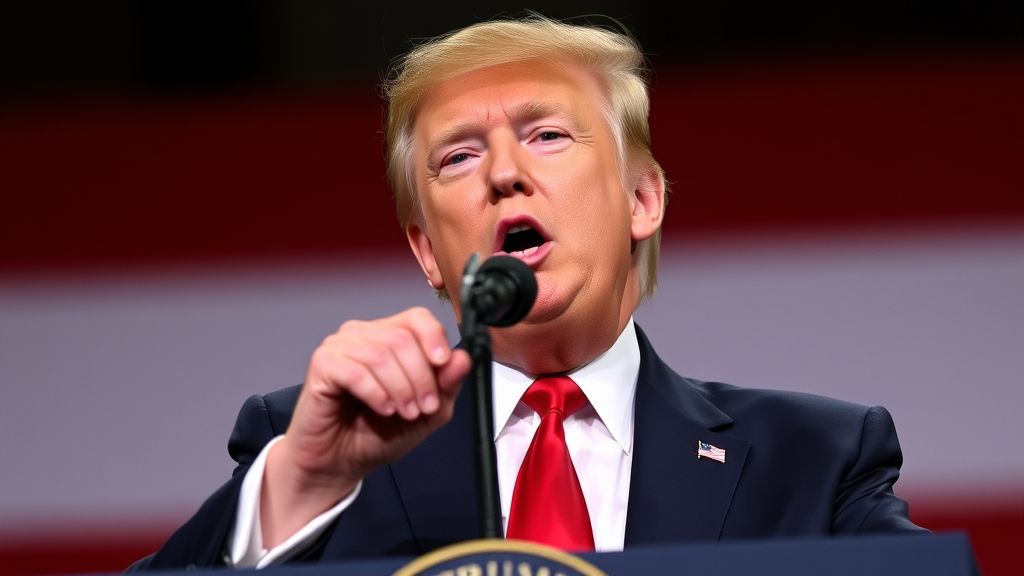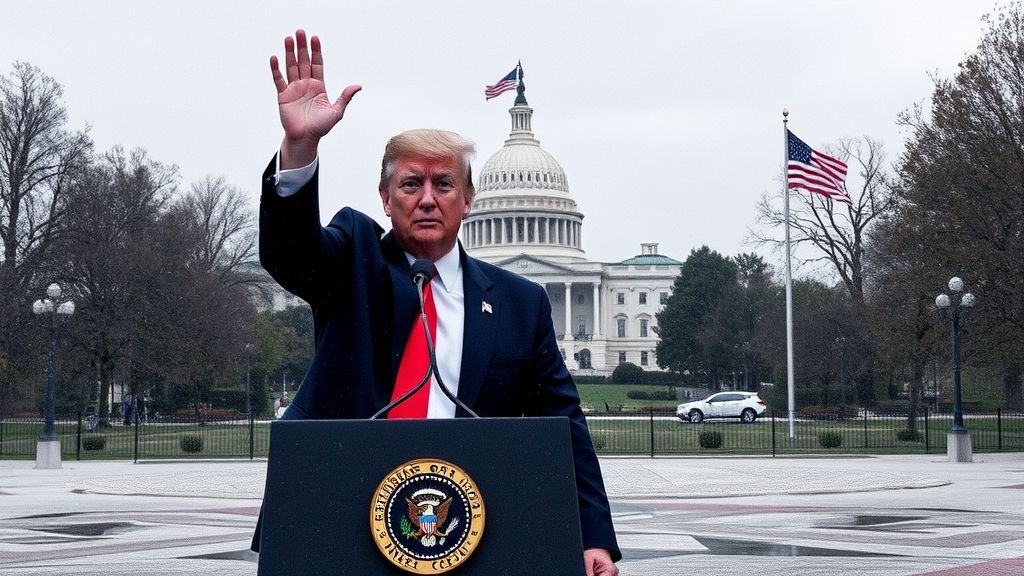Recent events in Portland, Oregon, have ignited a firestorm of debate and concern as federal troops were deployed to a city described by local officials as not experiencing a state of war. This unexpected intervention, initiated by the Trump administration, has raised critical questions about the role of federal authority in domestic unrest, the definition of “war-ravaged,” and the communication breakdown between different levels of government. Understanding this complex situation requires a closer examination of the stated justifications, local realities, and the broader implications for civil liberties and democratic governance.
The Unseen Conflict: Federal Justification vs. Local Reality
The Trump administration’s rationale for deploying federal agents, including those from the Department of Homeland Security (DHS), centered on claims of rampant lawlessness and violence in Portland. The President repeatedly characterized the city as being overrun by “anarchists” and “thugs,” suggesting a level of destruction and disorder akin to a war zone. This narrative was amplified through presidential statements and executive orders aimed at restoring “law and order.”
However, this portrayal starkly contrasted with the accounts of Portland’s own elected officials and residents. Mayor Ted Wheeler and other local leaders consistently stated that while protests and occasional clashes had occurred, the city was not in a state of civil war or widespread devastation that would necessitate such a heavy federal presence. They argued that local law enforcement was capable of managing the situation and that the federal intervention was exacerbating tensions rather than de-escalating them. This discrepancy highlights a fundamental disagreement on the severity and nature of the events unfolding.
Implications of Federal Intervention: Erosion of Trust and Civil Liberties
The deployment of federal agents, particularly those not typically involved in domestic law enforcement like DHS tactical teams, raised significant concerns regarding the erosion of civil liberties and the potential for overreach. Eyewitness accounts and video evidence emerged of agents using force against protesters, including the use of tear gas, rubber bullets, and alleged instances of unmarked vehicles apprehending individuals. These actions, perceived by many as a heavy-handed response to largely peaceful demonstrations, fueled distrust between citizens and law enforcement.
The Legal and Constitutional Quandary
A core element of the controversy lies in the legal and constitutional boundaries of federal intervention in local affairs. While the federal government has a role in protecting federal property and ensuring national security, the extent to which it can unilaterally impose its will on a sovereign state and its municipalities during periods of local protest is a complex legal question. Critics argued that the deployment violated the Posse Comitatus Act, which generally prohibits the use of the military for domestic law enforcement, although the specific composition of the deployed federal perso
el often skirted direct military involvement.
Furthermore, the use of broad powers to detain individuals without clear probable cause or identification of federal crimes raised alarms about due process and the right to protest. This situation brought to the forefront the delicate balance between maintaining public order and safeguarding fundamental constitutional rights.
Actionable Insights and Practical Information
For citizens and observers grappling with such complex situations, understanding the dynamics at play is crucial. Here are some actionable insights:
Verify Information from Multiple Sources: In an era of polarized media, it is vital to cross-reference information from local news outlets, official statements from city and state officials, and reputable national news organizations. Be wary of sensationalized narratives.
Understand the Role of Different Government Agencies: Recognize that federal agencies like DHS have specific mandates, which may differ from those of local police departments. This can explain why certain tactics or levels of force are employed.
Engage in Civic Discourse Responsibly: Understanding the legal frameworks and the rights of individuals during protests is essential. Participating in constructive dialogue about governance and civil liberties can contribute to a more informed public.
Advocate for Transparency and Accountability: When federal agents are deployed, there is a heightened need for transparency regarding their actions and clear mechanisms for accountability. Citizens and watchdog groups can play a role in demanding this.
Conclusion: A Broader Conversation on Governance and Rights
The situation in Portland, with federal troops deployed to a city local officials argued did not warrant such an intervention, serves as a stark reminder of the ongoing tensions between federal authority and local governance, and the enduring importance of safeguarding civil liberties. It underscores the need for clear communication, adherence to constitutional principles, and a commitment to de-escalation. As these events continue to unfold, they prompt a critical national conversation about the balance of power, the definition of public order, and the fundamental rights of citizens in a democratic society. Understanding the nuances of these disputes is not just an academic exercise, but a crucial element of informed civic participation.



